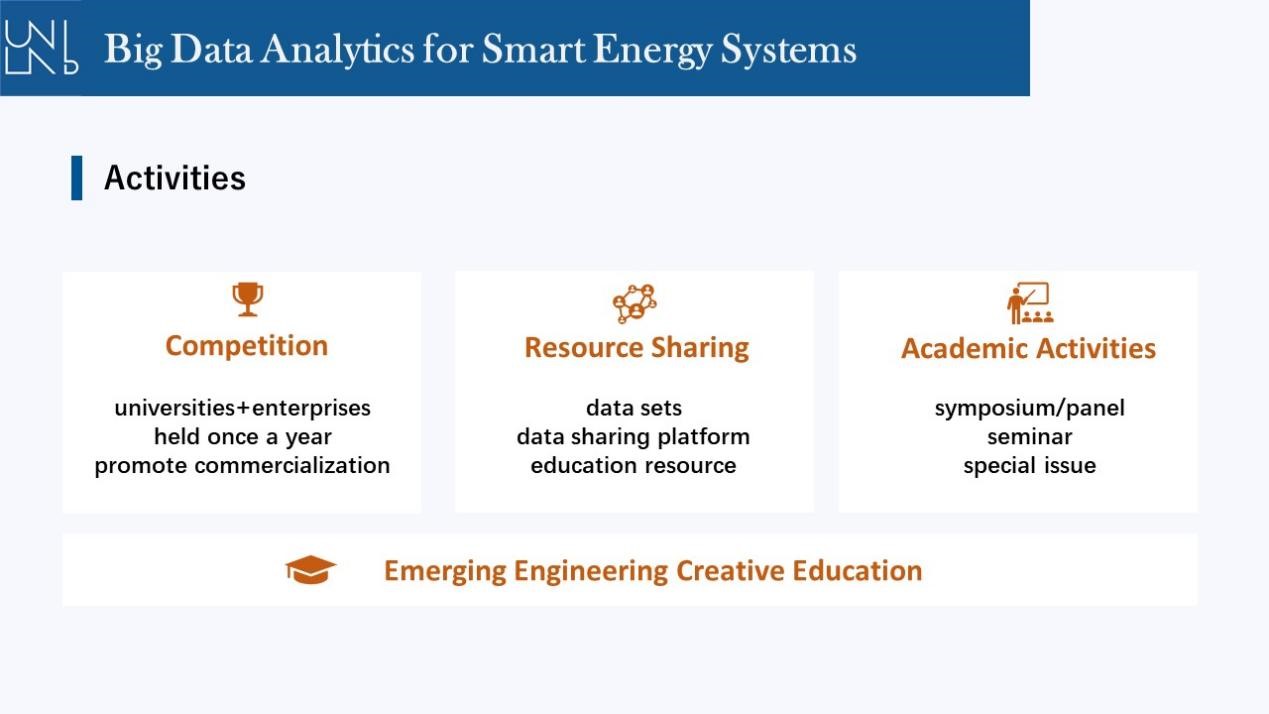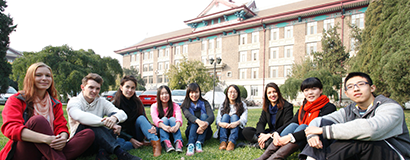The international joint laboratory UNiLAB-BDA Kick-off Meeting & Forum, supported by two top academic journals, Applied Energy, the world-famous academic journal in the field of energy, and Engineering, the international journal launched by Chinese Academy of Engineering (CAE), was held this June.
Prof. Jerry Yan, Member of European Academy of Sciences and Arts, EiC of Applied Energy and Advances in Applied, Prof. Chengshan Wang, Member of the Chinese Academy of Engineering, Dean of School of Electrical and Information Engineering, Tianjin University, and Prof. Jianwei Huang, IEEE Fellow, Associate Dean of School of Science and Engineering, The Chinese University of Hong Kong, Shenzhen, Associate Dean of Shenzhen Institute of Artificial Intelligence and Robotics for Society (AIRS), were invited to deliver speeches at the kick-off meeting of UNiLAB-BDA. Prof. Yan introduced in detail the responsibilities and missions of UNiLAB, which is a professional platform with the theme of cutting-edge energy research and innovation, promoting field cooperation and exchange and multi-disciplinary integration, and using the "interdisciplinary, cross regional and cross industry" integrated platform for international cooperation and scientific and technological innovation, aiming to eliminate the obstacles to traditional research and innovation, tap the potential of cooperation among researchers at the cutting-edge of science and technology, and maximize win-win cooperation in international cross fields. At present, 60+ partners in the world have jointly involved in the establishment of 10+ UNiLABs. Prof. Chengshan Wang expressed heartfelt congratulations on the establishment of UNiLAB-BDA. It’s worth noting that this is the second UNiLAB led by the School of Electrical and Information Engineering of Tianjin University.

In 2016, the first UNiLAB- Distributed Energy and Microgrid (UNiLAB-DEM) was initially established. With years of experience in laboratory construction, we firmly believe that the pioneering UNiLAB will promote key technology research and development, foster industry-university-research cooperation, build an academic community, and cultivate talents in emerging engineering disciplines. Prof. Jianwei Huang introduced the outstanding achievements and deep talent reserves made by School of Science and Engineering, The Chinese University of Hong Kong, Shenzhen in the application of AI technologies to smart grid and low-carbon energy system over the years. They will continue to focus on using the latest AI technologies to assist of development of large-scale distributed low-carbon systems, for example building the carbon trading economical system, looking at the low-carbon energy management systems and low-carbon transportation systems.
Dr. Yanli Liu, Head of the UNiLAB-BDA and Head of the Department of Electrical Engineering of Tianjin University, introduced the relevant information of UNiLAB-BDA. UNiLAB-BDA is jointly founded by world-renowned universities including Tianjin University, China, Nanyang Technological University, Singapore, The Chinese University of Hong Kong, Shen Zhen, China, Zurich University of Applied Sciences, Switzerland and National Technical University of Athens, Greece, and enterprises such as China EPRI, State Grid Tianjin Electric Power Company, Alibaba Cloud and OCSMARTER (Beijing) Technology Co., Ltd to promote the integration of traditional model methods and data-driven AI methods to support the realization of the future smart energy system, support the research of young scholars in related fields, and establish a strong link among universities and enterprises. In the future, we will focus on competitions, sharing of data and educational resources, academic seminars and promoting cultivating talents in emerging engineering disciplines in the field.

At the theme forum, Prof. Fei Wu of Zhejiang University, Prof. Nikos Hatziargyrius of National Technical University of Athens, Prof. Zhaoyang Dong of Nanyang Technological University, Tianjiao Pu, Director of Artificial Intelligence Application Research Department in China EPRI, and Jian Qiu, Technical Director of the Smart Energy & Carbon Department in Alibaba Cloud, were invited to focus on AI, big data, interpretable AI, key technologies of new-type power system, and key digital technologies to introduce the latest frontier achievements and practical applications in related fields. Prof. Fei Wu reviewed the Al history and outline the trend of Al development. At the same time, he introduced some examples of how AI technology is utilized in energy systems. Prof. Nikos firstly discussed the role of intelligent distribution networks, as the backbone of future integrated energy systems. Then he introduced the benefits provided by the organization and exploitation of the large amount of data, available by the wide deployment of smart meters, sensors, smart substations, intelligent devices, etc. in distribution system operation and planning. In view of many limitations of the existing deep learning technologies, Prof. Zhaoyang Dong proposed a load forecasting method based on interpretable memristive LSTM to better suit risk management purposes in smart grid operations. Director Tianjiao Pu first analyses the changing trends in the characteristics of the new-type power system, and proposes three key areas in which digital and intelligent (D&I) technologies can contribute to the existing power system, namely deep and precise sensing, data fusion and utility, and intelligent decision-making capabilities. Finally, the exploration of CEPRI in new D&l technologies and applications were introduced, and to sum up, the report also carried out a prospect on future development of power grid D&I technologies and building a digital twins system of energy internet. Technical Director Jian Qiu introduced a digital platform built by Alibaba cloud for carbon emission reduction analytics, carbon footprint calculation, and predictive analysis for renewable energy. The platform has a built-in carbon peak deduction model, an emission reduction strategies generation tool and a comprehensive ‘energy-environment-economy’ model for green city development, and finally helps the government, enterprises and residents scientifically achieve carbon neutrality through digital technology.
The day of the kick-off meeting coincided with the Grain in Ear, one of the Chinese traditional twenty-four solar terms, “the seeds of rice and wheat should be sown on the day of grain in ear ". In the future, UNiLAB-BDA will join forces with universities and enterprises to sow the seeds of big data and open a new chapter in building a smart energy system!
The theme forum video and follow-up events and related resources will be continuously updated and launched on the UNiLAB-BDA website (http://dataunilab.tju.edu.cn/).
By: School of Electrical and Information Engineering
Editor: Qin Mian






